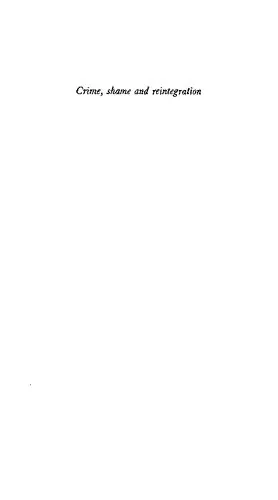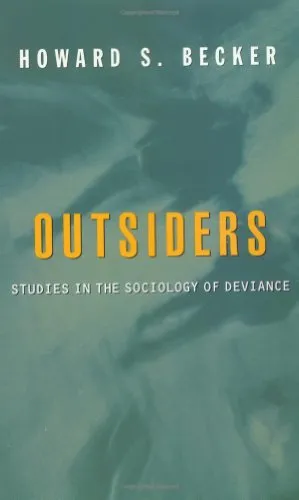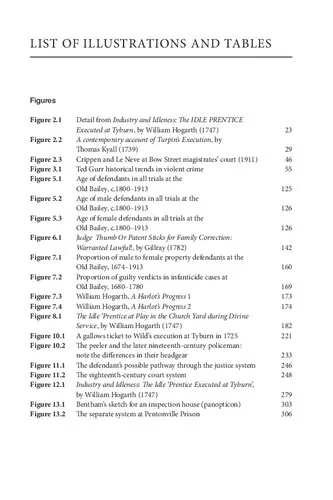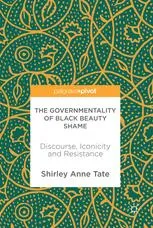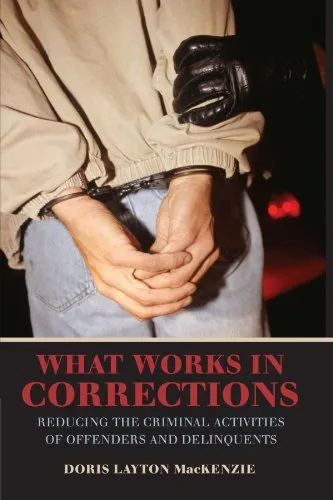Crime, Shame and Reintegration
4.5
Reviews from our users

You Can Ask your questions from this book's AI after Login
Each download or ask from book AI costs 2 points. To earn more free points, please visit the Points Guide Page and complete some valuable actions.Related Refrences:
Introduction to 'Crime, Shame and Reintegration'
Published in 1989, 'Crime, Shame and Reintegration' by John Braithwaite offered a groundbreaking perspective on crime and societal mechanisms that influence criminal behavior. This book lays the foundation for understanding the powerful role of social mechanisms, particularly the process of reintegrative shaming, to reduce crime rates and promote community healing.
Detailed Summary
In 'Crime, Shame and Reintegration', Braithwaite examines the role of shaming in influencing criminal behavior and differentiates between stigmatizing shame, which alienates individuals, and reintegrative shaming, which fosters forgiveness and healing. The book introduces the concept that societies can manage crime effectively not by punitive means, but by adopting reintegration practices. It talks about how successful societies like Japan have adopted community-based approaches that encourage law violators to reenter the community positively.
Braithwaite argues that all societies use shaming as a social mechanism; however, the impact varies based on whether the shaming is reintegrative or stigmatizing. Reintegrative shaming is characterized by showing disapproval of the crime while maintaining respect for the offender as a person. This practice, as Braithwaite contends, effectively deters future crime and encourages rehabilitation, unlike stigmatizing shame, which can push individuals further into deviant behavior and recidivism.
Key Takeaways
- Understanding the dual nature of shaming as a social control mechanism.
- The comparison between reintegrative shaming and stigmatizing shaming.
- Reintegrative shaming practices contribute to lower crime rates and better social coherence.
- Empirical examples and case studies, including insights from Japanese society, demonstrate the effectiveness of community-oriented approaches to crime reduction.
- Suggestions for implementing reintegrative shaming in Western societies to reform criminal justice systems.
Famous Quotes from the Book
"Crime is most likely when shaming is stigmatizing rather than reintegrative and when opportunities for crime are present."
"The reintegrative shaming perspective argues that shaming can be rehabilitative and restorative when it is followed by efforts to reconnect with the community."
Why This Book Matters
'Crime, Shame and Reintegration' matters because it challenges the traditional punitive approaches of dealing with crime, which often lead to negative societal outcomes such as recidivism and marginalization. By introducing the concept of reintegrative shaming, Braithwaite presents a compelling case for reform in criminal justice systems worldwide, emphasizing the need for rehabilitative over punitive measures.
The book sheds light on the role of communities in the socialization process and how creating supportive environments can significantly impact crime prevention. As societies grapple with increasing crime rates and the limitations of incarceration, Braithwaite's work provides essential insights into alternative methods of crime control that are sustainable, humane, and just.
In essence, John Braithwaite's 'Crime, Shame and Reintegration' is pivotal for policymakers, criminal justice professionals, and sociologists who seek to understand and implement more effective crime reduction strategies through the lens of socio-cultural influences and community engagement.
Free Direct Download
You Can Download this book after Login
Accessing books through legal platforms and public libraries not only supports the rights of authors and publishers but also contributes to the sustainability of reading culture. Before downloading, please take a moment to consider these options.
Find this book on other platforms:
WorldCat helps you find books in libraries worldwide.
See ratings, reviews, and discussions on Goodreads.
Find and buy rare or used books on AbeBooks.
1449
بازدید4.5
امتیاز0
نظر98%
رضایتReviews:
4.5
Based on 0 users review
Questions & Answers
Ask questions about this book or help others by answering
No questions yet. Be the first to ask!
